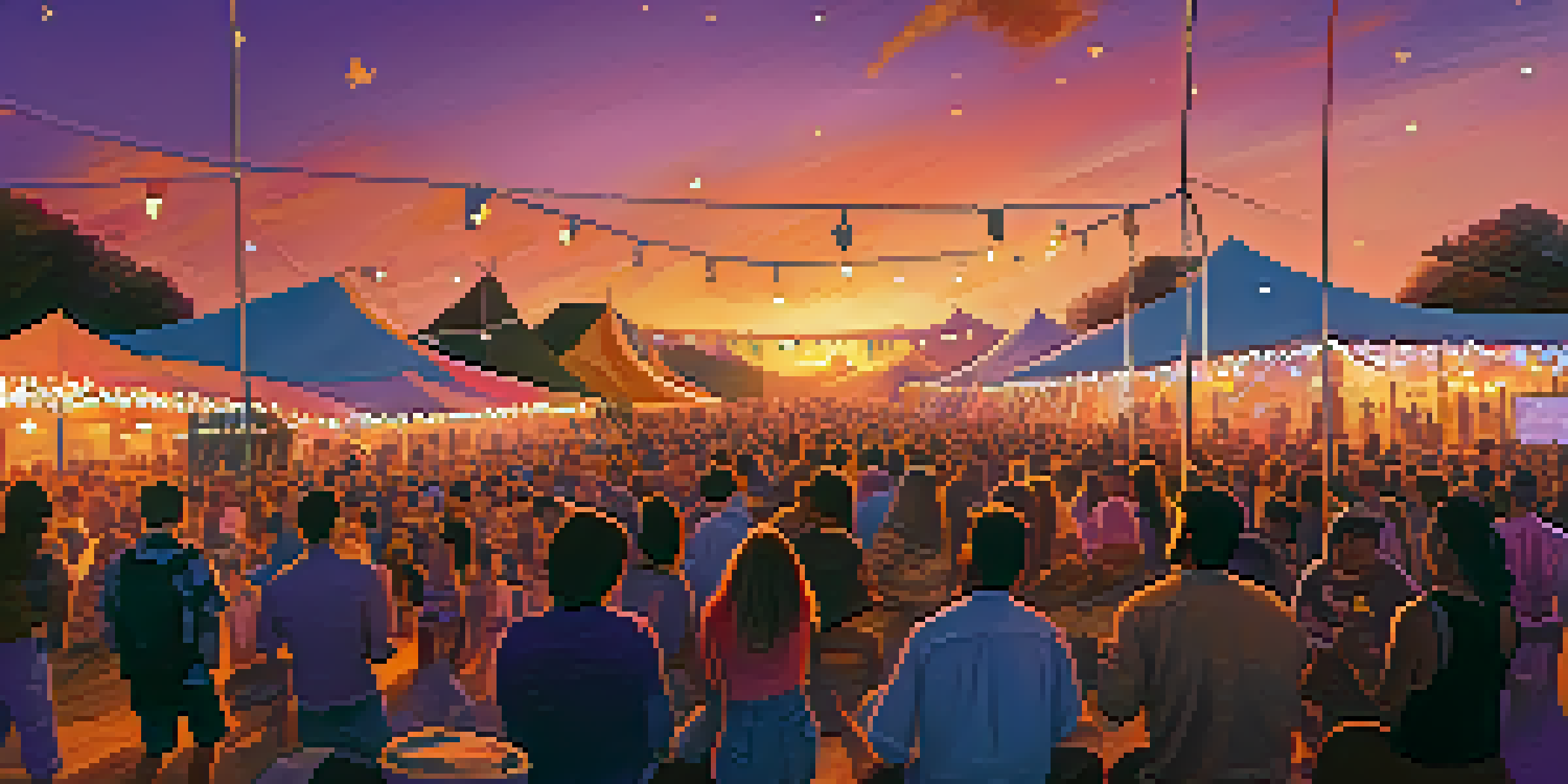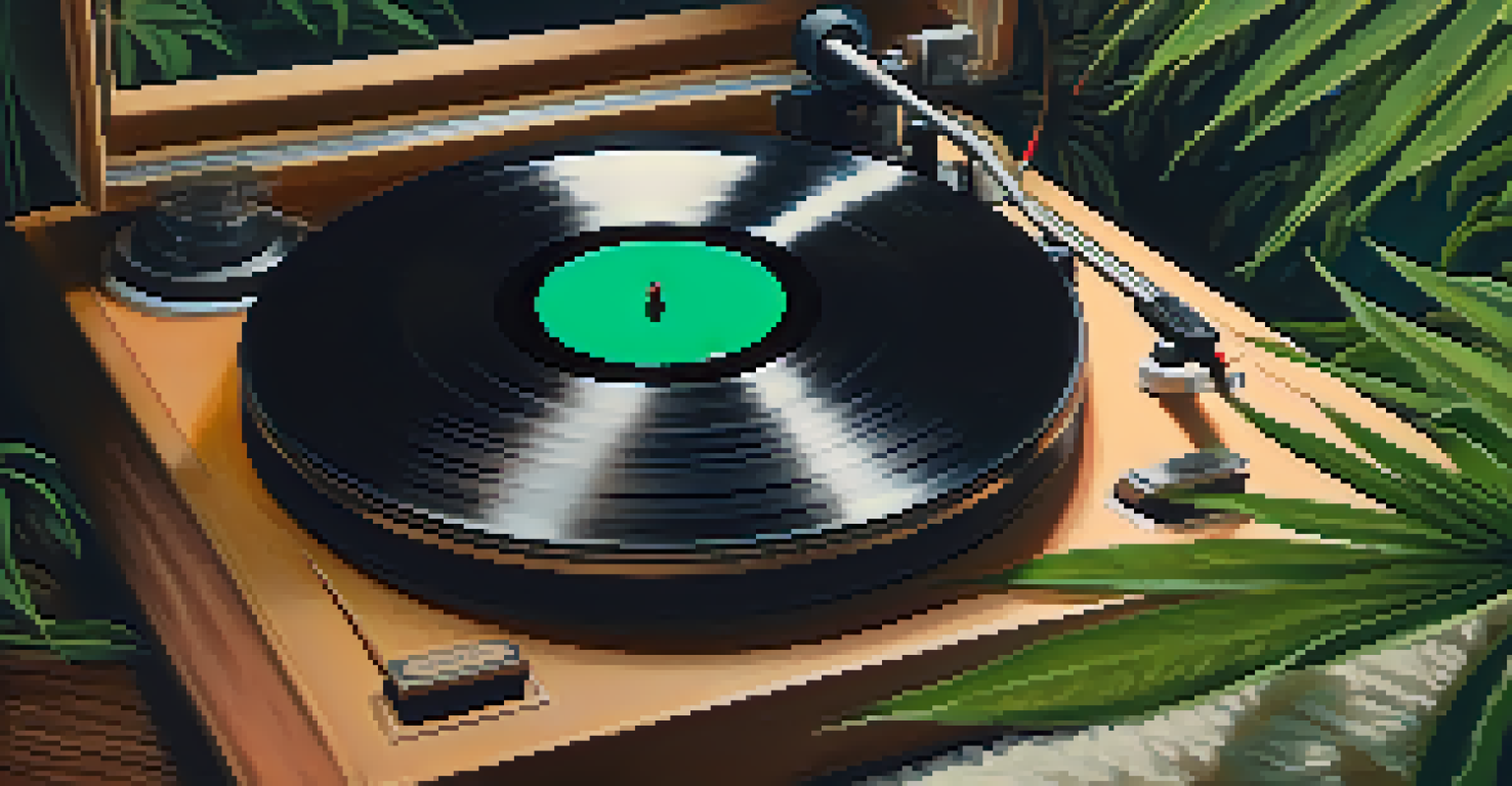Marijuana Use Among Musicians: A Look at the Trends

Marijuana's Historical Role in Music Culture
Marijuana has been intertwined with music culture for decades, often seen as a source of inspiration for many artists. From jazz musicians in the early 20th century to rock legends in the 60s, cannabis was frequently associated with creativity and a sense of freedom. The use of marijuana has been romanticized in songs and stories, creating an almost mythic connection between the plant and artistic expression.
Marijuana is not a drug, it's a plant. It’s not a drug. It’s a plant. It’s not a drug. It’s a plant. It’s a plant. It’s a plant. It’s not a drug. It’s a plant.
In the 1970s and 1980s, marijuana became a symbol of rebellion, particularly in genres like punk and reggae. Artists like Bob Marley and The Clash openly embraced the use of cannabis, further popularizing it within the music community. This era highlighted how marijuana could foster a sense of unity and shared experience among fans and musicians alike.
Today, this historical connection continues, as many contemporary artists openly discuss their marijuana use, often advocating for its legalization. As society's view on cannabis evolves, musicians are at the forefront of this cultural shift, using their platforms to de-stigmatize marijuana consumption and promote its potential benefits.
Current Trends in Marijuana Use Among Musicians
Recent studies indicate that a significant number of musicians continue to use marijuana, with many citing stress relief and creative enhancement as their primary reasons. The fast-paced and often demanding nature of the music industry can lead artists to seek out substances that help them cope. For many, marijuana serves as a tool for relaxation, enabling them to unwind after long hours of touring or recording.

Additionally, with the rise of the cannabis industry, musicians are more likely to engage with marijuana in various forms, including edibles, oils, and CBD products. This diversification in consumption methods provides artists with options that suit their lifestyle and preferences. It also reflects a broader acceptance of cannabis in society, allowing musicians to explore its benefits without fear of judgment.
Cannabis as Creative Inspiration
Marijuana has historically fueled artistic expression across various music genres, fostering creativity and a sense of freedom among musicians.
Moreover, some musicians are even launching their own cannabis brands, further blurring the lines between music and marijuana. This trend not only supports their personal connection with the plant but also capitalizes on the growing cannabis market, showcasing the entrepreneurial spirit within the music community.
The Impact of Legalization on Musical Creativity
As more states and countries legalize marijuana, the creative landscape for musicians is shifting dramatically. Legal access removes the stigma and risks associated with cannabis use, allowing artists to experiment freely without legal repercussions. This newfound freedom can lead to a surge in creative output, as musicians feel more at ease in their artistic processes.
The use of marijuana is a way to free your mind and your soul.
Many artists report that legal cannabis enhances their creative flow, providing a different perspective on their work. The ability to use marijuana in a safe, legal environment can lead to groundbreaking collaborations and innovative projects. This environment fosters a community where artists can share ideas and experiences, ultimately pushing the boundaries of musical genres.
Furthermore, legalization has also opened doors for musicians to engage with their fans in new ways. Concerts and festivals are increasingly incorporating cannabis experiences, creating unique atmospheres that enhance the overall performance. This evolution highlights how marijuana can contribute to a shared cultural experience between artists and their audiences.
Social Media's Role in Normalizing Marijuana Use
Social media platforms have played a pivotal role in normalizing marijuana use among musicians and their fans. Artists often share their experiences with cannabis on platforms like Instagram and Twitter, creating a sense of community and openness. This visibility helps to dispel myths and reduce stigma surrounding marijuana, encouraging fans to embrace its use as part of the music culture.
Moreover, social media allows musicians to connect with cannabis brands, promoting products that align with their lifestyles. Sponsored posts and collaborations with marijuana companies are becoming increasingly common, creating a new revenue stream for artists. This relationship also enhances the visibility of cannabis culture within the music industry, further intertwining the two.
Legalization Enhances Creativity
The legalization of marijuana allows musicians to explore their creativity without fear of legal repercussions, leading to innovative collaborations and projects.
Through these platforms, musicians can also educate their audiences about responsible use and the potential benefits of marijuana. By sharing personal stories and insights, they help cultivate a more informed and open-minded community, one that appreciates the complexities of cannabis use in a modern context.
The Intersection of Mental Health and Marijuana Use
Many musicians face unique mental health challenges due to the pressures of their profession, making marijuana an appealing option for coping. Artists often report using cannabis to manage anxiety, depression, and stress, allowing them to navigate the emotional rollercoaster of their careers. This relationship highlights the importance of mental health awareness within the music industry.
However, it's essential to approach cannabis as a tool for mental health with caution. While some musicians find relief through marijuana, others may struggle with dependency or adverse effects. Understanding the balance between use and dependency is crucial, as artists advocate for self-care practices and healthier coping mechanisms.
As the conversation surrounding mental health continues to evolve, many musicians are using their platforms to promote open dialogue about these issues. By sharing their experiences with both cannabis and mental health, artists can inspire others to seek help and explore healthier lifestyles while also finding their creative voices.
Cultural Representation of Marijuana in Music
The representation of marijuana in music varies significantly across genres, reflecting broader cultural attitudes towards the plant. In hip-hop, for instance, cannabis is often celebrated and portrayed as part of a lifestyle, while in country music, it may be depicted more cautiously. These differing representations shape how audiences perceive marijuana and its role in the creative process.
Artists like Snoop Dogg and Willie Nelson have become cultural icons in their own right, embodying the connection between music and marijuana. Their public personas promote a lifestyle that embraces cannabis, influencing fans and fellow musicians alike. This representation can help normalize marijuana use and encourage conversations about its benefits and misconceptions.
Social Media Normalizes Cannabis Use
Social media platforms play a crucial role in normalizing marijuana use among artists and fans, helping to dispel stigma and foster a sense of community.
As genres continue to evolve, the portrayal of marijuana in music is likely to change as well. New artists are emerging with fresh perspectives, and as societal views shift, these representations will reflect an increasingly open and accepting attitude toward cannabis use in the music industry.
Looking Ahead: Future Trends in Music and Marijuana Use
As the cannabis industry continues to grow, so too will its influence on the music world. We can expect to see more collaborations between musicians and cannabis brands, leading to innovative products and experiences that enhance both music and marijuana culture. This trend may also encourage artists to explore new sounds and ideas inspired by their experiences with cannabis.
Moreover, as public attitudes towards marijuana evolve, we may witness a shift in how it is discussed and represented in music. Artists might focus more on the therapeutic aspects of cannabis rather than the recreational, promoting a message of wellness and self-care. This could lead to a deeper, more meaningful connection between artists and their audiences.

Ultimately, the future of marijuana use in music will likely continue to reflect broader societal changes. As artists advocate for legalization and responsible use, they will play a vital role in shaping public perception, contributing to a culture that embraces cannabis as a legitimate part of their creative process.